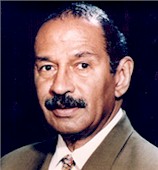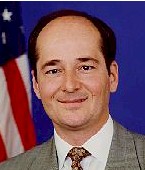|
House Subcommittee Considers FCC Authority to Take Property
(March 22, 2000) The House Constitution Subcommittee held an oversight
hearing on the FCC's proposal to require apartment building owners to provide
access to telephone, cable, and other service providers. Landlords and some
legal scholars testified that this would be an unconstitutional taking of their
property under the Fifth Amendment and the Loretto case.
The Federal Communications Commission
started a controversial rule making proceeding last summer regarding giving
telecommunications providers forced access to the rooftops of apartment
buildings. The proposal would require building owners to provide access to their
properties to telecommunications service providers under rates, terms, and
conditions comparable to those they have provided in the past to other
providers.
No one from the FCC testified at the hearing. However, the subcommittee heard
from two panels of witnesses. One was comprised on lawyers and law professors
with expertise in the area of private property rights. The other was comprised
of representatives of companies that would be affected by the FCC's proposal.
Only two members of the subcommittee participated in the hearing, Rep. Charles Canady (R-FL) and Rep. John Conyers (D-MI). Rep. Canady
is the Chairman of the subcommittee. Rep. Conyers is the ranking member of the
full Judiciary Committee.
The FCC wrote in its NPRM last summer that:
"We believe competitive telecommunications networks will provide
alternatives to local services provided by the incumbent wireline local
exchange carriers (LECs) and provide new services to the public. This item
initiates a rulemaking proceeding to consider certain actions to facilitate
the development of competitive telecommunications networks, and commences an
inquiry into certain other issues related to this goal. In particular, we
consider actions to help ensure that competitive providers will have
reasonable and nondiscriminatory access to rights-of-way, buildings, rooftops,
and facilities in multiple tenant environments."
Property owners, and the organizations which represent them, oppose the rule.
The subcommittee heard from three authorities on private property rights. Two
testified that the FCC's proposal is unconstitutional under the Supreme Court's
1982 ruling in Loretto v. Teleprompter Manhattan CATV Corp., 458 U.S.
419. In this case the Court held that a law authorizing a telecom carrier to
effect a permanent physical occupation of private property constituted a per
se taking under the Takings Clause.
Steven Eagle, a professor at George Mason University, stated that "such
forced access would result in a permanent physical occupation of the landlord's
property. This would violate the Takings Clause of the Fifth Amendment unless
just compensation was paid, under the Supreme Court's holding in Loretto ..."
Viet Dinh, a professor at Georgetown University, disagreed. He distinguished
the FCC's proposal from the facts in the Loretto case. "A nondiscriminatory
access requirement of the type proposed by the FCC, however, is substantively
different. Instead of mandating that a property owner open his property to
outsiders, a nondiscrimination provision simply requires that, should the owner
open his property to any outsider, he must also entertain others."
He stated that his argument rests on the Supreme Court's 1964 opinion in Heart
of Atlanta Motel, Inc. v. United States, 379 U.S. 241. In that case the
Court held that the 1964 Civil Rights Act applied to a motel that refused to
rent rooms to blacks.
Steven Rosenthal responded that Heart of Atlanta was inapplicable, and
that the only reason many ILECs have facilities on rooftops is because they
forced they way in under eminent domain, or threats to exercise eminent domain.
Rep. Canady also concluded that "it looks a whole lot more like Loretto
than Heart of Atlanta."
 |
|
Rep. John
Conyers (D-MI)
|
|
Witnesses also debated the economics of forced access to roughtops.
Supporters of the FCC proposal stated that it would increase competition.
Opponents stated that the real estate market is competitive, and it would be
best to let the market operate freely.
Rep. Conyers also participated in the hearing. "I support competition in
all sectors," he said. "We need to have numerous technologies
competiting."
"I do not believe that the Fifth Amendment is violated" by the
FCC's proposal. However, he then qualified this by saying "so long as just
compensation is provided."
Opening statement of Rep. Charles Canady (R-FL).
Event: House Constitution Subcommittee hearing.
Re: Private Property Rights and Telecommunications Policy.
Date: March 21, 2000.
Source: House Judiciary
Committee. |
 |
| In order to make telecommunications services, such as
wireless communications services, more widely available, the Federal
Communications Commission is considering issuing a rule that would require
building owners to provide access to their properties to
telecommunications service providers under rates, terms, and conditions
"comparable" to those they have provided in the past to other
telecom providers, such as phone and cable companies.
In its Notice of Proposed Rulemaking ("NPRM") dated July 7,
1999, the FCC stated:
[W]e now seek comment on whether building owners who allow access to
their premises to any provider of telecommunications services should
make comparable access available to all such providers under
nondiscriminatory rates, terms, and conditions. In light of [information
indicating] that a number of building owners may be imposing
unreasonable and discriminatory charges on competitive carriers, we seek
comment on whether adoption of this principle may be necessary to ensure
that consumers in multiple tenant environments have the ability to
access the service provider of their choice."
NPRM, at ¶ 53.
The FCC finds its authority to issue such a rule under § 224 of the
Communications Act, which requires utilities, including local exchange
carriers, to provide telecom carriers with nondiscriminatory access to any
pole, duct, conduit, or right-of-way that they own or control. 47 U.S.C.
§ 224(f)(1). While section 224 technically applies only to public
utilities, the proposed rule necessarily would impact the property rights
of building owners. Section 224 requires utilities, including local
exchange companies, to "provide cable television systems and
telecommunications carriers with nondiscriminatory access to any pole,
duct, conduit, or right-of-way that they own or control," and the
proposed interpretation would apply this requirement to
"rights-of-way and conduits on end user premises." See
NPRM at ¶ 36, 45. In the NPRM, the FCC states that it has tentatively
concluded that a definition of "right-of-way" that includes
"a publicly or privately granted right to place a transmit or receive
antennae on public or private premises is consistent with the common usage
of the term." NPRM, at ¶ 42.
Some have argued that some property owners are unreasonably denying
telecom carriers access to their rooftops for the installation of the
microwave dishes and other equipment necessary to construct a wireless
network that could effectively compete for the provision of telecom
services with traditional, wire-based phone services. Others, however,
have argued that, while some landlords may not be providing access to
their property in ways acceptable to some telecom companies, the vast
majority of landlords provide reasonable and ready access.
Some of the proposals contained in the FCC’s NPRM, if adopted in a
final rule, would require real property owners to acquiesce to the
physical presence of uninvited telecom service providers on their private
property in order to further a public policy promoting the availability of
telecom services. Such a rule would implicate the Fifth Amendment of the
United States Constitution, which states, in part, that "private
property [shall not] be taken for public use without just
compensation." U.S. Const. Amend. V.
The Supreme Court, in Loretto v. Teleprompter Manhattan CATV Corp.,
458 U.S. 419 (1982), held that a law authorizing a telecom carrier to
effect a permanent physical occupation of private property constituted a per
se taking under the Takings Clause. In that case, a New York statute
provided that a landlord would have to permit a cable television company
to install its facilities upon his property and could not demand payment
from the company in excess of an amount determined to be reasonable by a
State Commission. As the Supreme Court stated, "The installation
involved a direct physical attachment of plates, boxes, wires, bolts, and
screws to the building, completely occupying space immediately above and
upon the roof and along the building's exterior wall." Id. at
438.
The decision established that such an invasion of real property always
effects a taking, regardless of how small the physical occupation may be
in relation to the remainder of the owner’s estate. As the Court stated,
"[W]e have long considered a physical intrusion by government to be a
property restriction of an unusually serious character for purposes of the
Takings Clause. Our cases further establish that when the physical
intrusion reaches the extreme form of a permanent physical occupation, a
taking has occurred. In such a case, ‘the character of the government
action’ not only is an important factor in resolving whether the action
works a taking but also is determinative." Id. at 425.
Further, "The historical rule that a permanent physical occupation of
another's property is a taking has more than tradition to commend it. Such
an appropriation is perhaps the most serious form of invasion of an
owner's property interests ... The power to exclude has traditionally been
considered one of the most treasured strands in an owner's bundle of
property rights." Id. at 435. To the extent building owners
have ownership, under state and local property law, of any of the
facilities subject to one of the NPRM’s proposed rules, the NPRM may
effect a per se taking of private property under Loretto.
In his statement accompanying the NPRM, Commissioner Powell stated that
"under judicial precedent, this agency should not move toward rules
that would effectuate a per se taking without specific authority to do so
..." It is with Commissioner Powell’s caution in mind that the
Subcommittee on the Constitution proceeds with an inquiry into whether the
rules proposed by the FCC in the NPRM would effect a taking of private
property and, if so, whether the FCC has the authority to implement such a
rule. |
|
